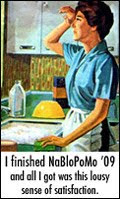As a follow-up to my previous post, I'd like to talk more about gendered and inclusive language!
When addressing a group, many people use the phrase, "you guys." Admittedly, Boomers and Old People are not likely to do this, as it's extremely casual and not professional. Not all people are guys, and as a phrase, it's not inclusive to many people at all!
Unfortunately, a lot of cute alternative suggestions circulate online: Comrades (that one offends me), glitter kitten, kiddos (wildly condescending), theydies and gentlethems, and buckaroos. These terms are patronizing and condescending, and as a result, infers a non-binary (agender, nongendered, genderless, genderfree) person "less than." (Plus it reinforces the gender binary.)
Yinz is great, but it's limited to the Pittsburgh (and Western Pennsylvania) region. Yinz is an extension of "you" and "youse," which is perfectly fine.
My nephew likes "people," but outside the context of a toddler cheering, "Good morning, people," it's a bad fit; "you people" has long been used against Black people for a very long time. (I yell, "GOOD MORNING PEOPLE," at my plants every morning.) When I year "good people" it makes me feel like the speaker is preparing to proselytize.
As a former food service professional, I relied on, "Hey guys!" a lot, and it was a hard habit to break. It's embarrassing, too, because it's a holdover from my childhood, when the "proper" term for groups of mixed-gender people was to take the "male" version (steward, actor, policeman, snowman), which I didn't agree with then, either. I looked for the right phrase for years, and here it is:
"Hey everybody!"
A nice alternative is "folks" and "ya'll," which is perfect, except when it comes out of my mouth. When I say, "ya'll," it sounds disingenuous and wrong, two attitudes that do not lead to lucrative tips or imply excellent customer service. (I grew up in a small town and spent over 30 years shaking it off of me.) Comedian Hannah Gadsby called it, "The most inclusive second-person plural pronoun in the English-speaking world!"
A lot of the Facebook groups I'm in are populated and administered by kind, progressive people. The interests (writing, gardening, true crime, Golden Girls) are often "female-based," but that's not always true of membership, or frankly, the hobby. One, men can like these things too (look at male authors or my grandfather, who read true crime non-fiction). Also, non-binary people also have hobbies and interests. "Hey ladies," is usually "banned" from these groups as a greeting. It's a good idea to check the rules of a group you're in when you join (the rules are usually in the sidebar on the right). Sometimes, these groups may allow themed terms, (for example, a gardening group I'm in often uses "sprouts" or "fronds"), but that's just too much. Why strip people of their humanity when you can be inclusive instead?
If you need all of those extra ideas, maybe the problem is less about words and more about one's inability to treat others with kindness and respect. So just say "everybody," or if you're kind, "ya'll."
It's been a long time since I launched this blog. I talk about "Old People" in this post. Old People does not refer to Baby Boomers exclusively, and as times have changed, it is less and less likely that a Boomer is an exclusive audience for a Lesson, especially a cultural one!
Resources:
Douglas by Hannah Gadsby on Netflix
Yinz, Wikipedia
The trends that may end the “y’all” vs “you guys” debate, Quartz
7 Racially Coded Phrases That Everyone Needs to Stop Saying About Black People, Everyday Feminism



